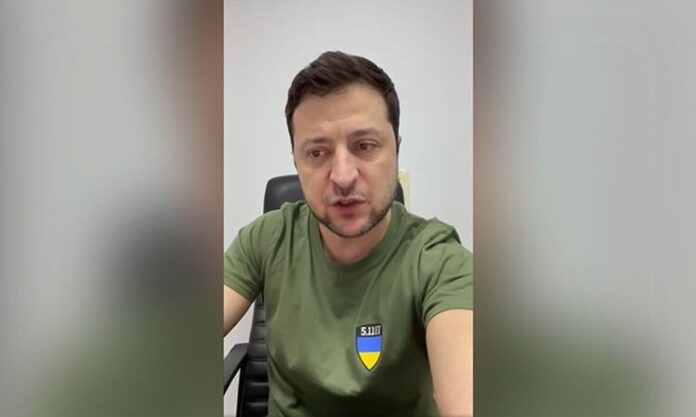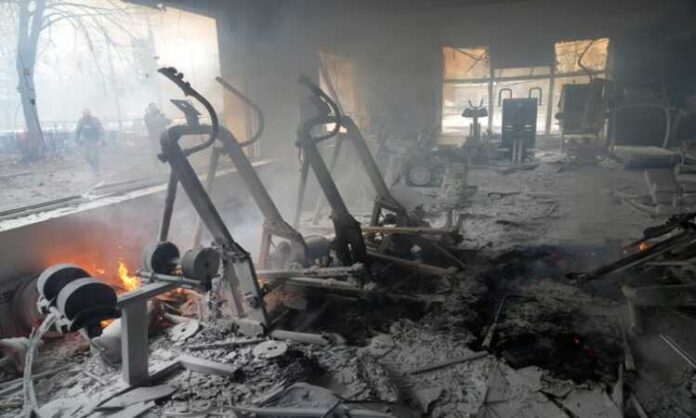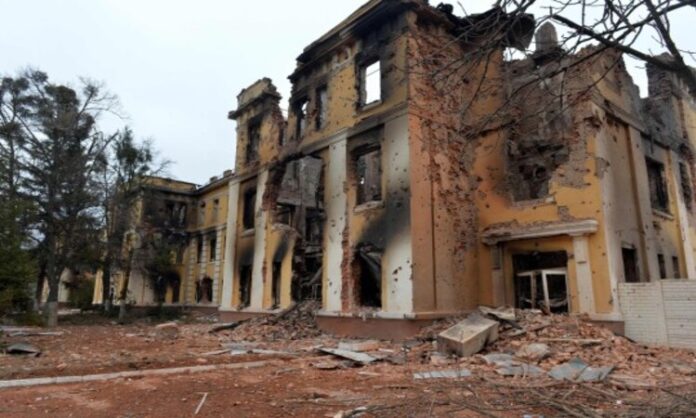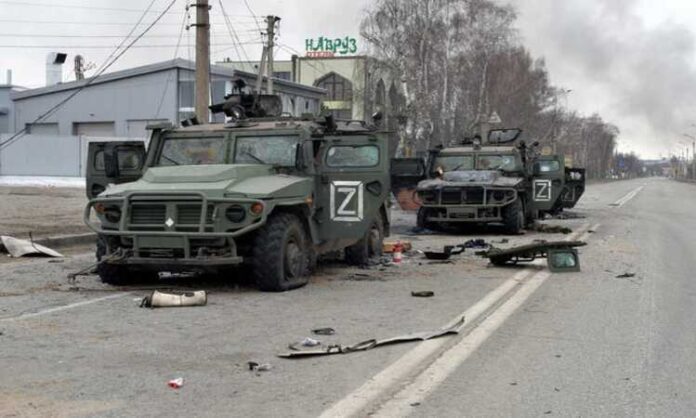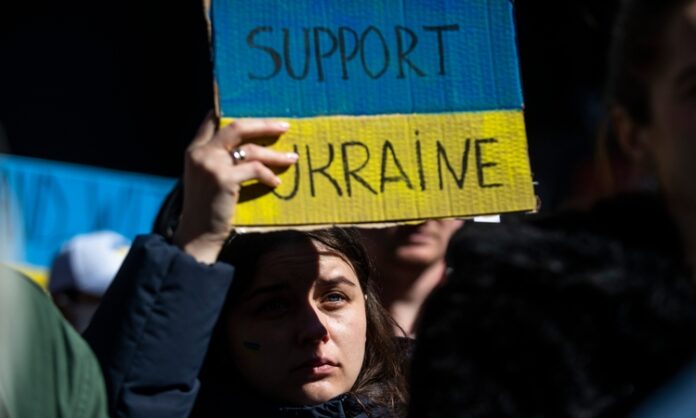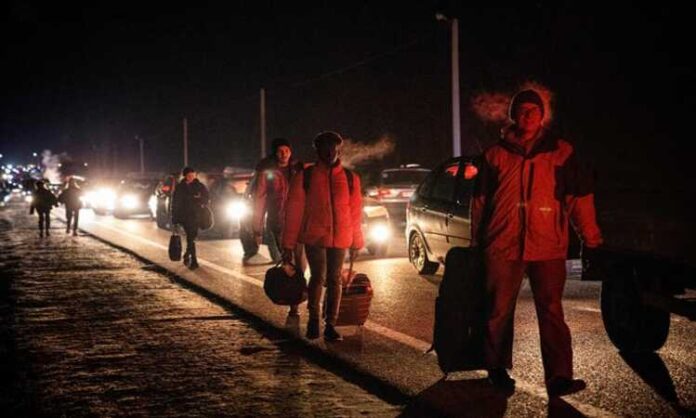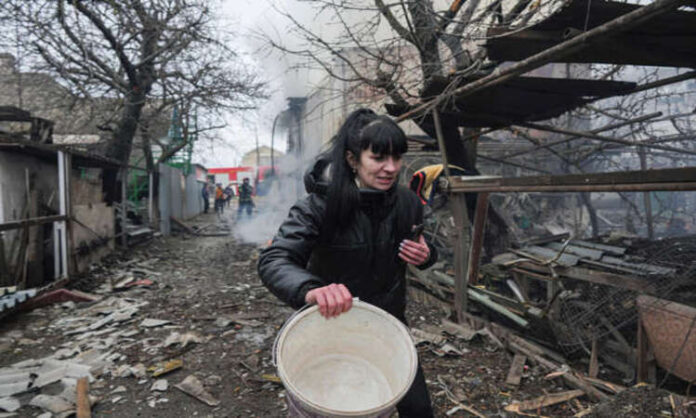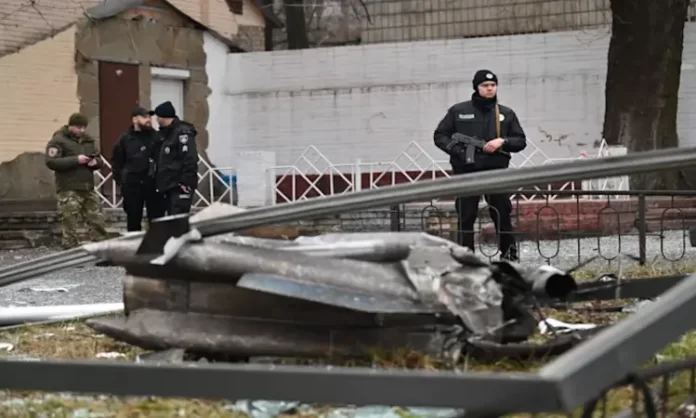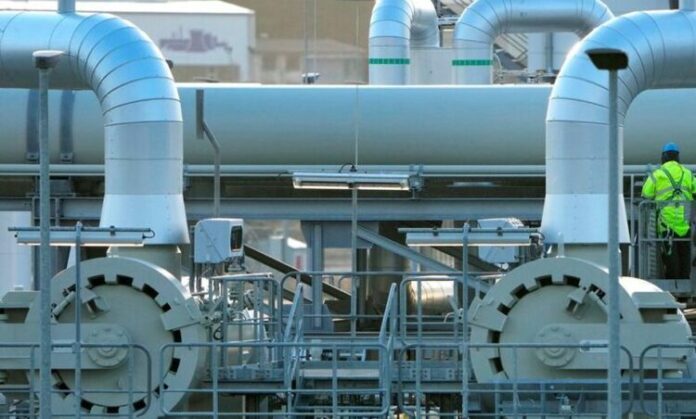According to a statement from Ukraine’s Ministry of Energy, German Galushchenko had a “urgent” phone chat with his US colleague Jennifer Granholm regarding the situation at the Zaporizhzhia nuclear power plant early Friday.
According to the Ukrainian State Emergency Service, the fire at the plant started in the early hours of Friday morning and was quickly doused with no injuries. According to the statement, Galushchenko remarked, “The adversary is unconcerned about nuclear and radiation security.” He went on to say that Russia was “unconcerned” about the lives of Ukrainians, Europeans, and their own countrymen.
“For several days, we have been attempting to communicate this warning to the International Atomic Energy Agency. We urged that this international organisation intervene and that the perpetrator be dealt with harshly. But they haven’t arrived yet “Galushchenko stated the following.
Ukrainian President Volodymyr Zelensky accused Russia of deliberately firing at the Zaporizhzhia nuclear power station in a Facebook post early Friday, after a fire broke out at the complex following intense bombardment by Russian soldiers.
Although the situation remains fluid and firemen continue to combat the flames, Ukrainian authorities claim the power facility has not incurred any serious damage and that radiation levels are now normal.
“Russian tanks are firing at thermal imager-equipped atomic reactors.” They have a good idea of what they’re firing at. “They’ve been planning this (attack) for a long time,” he wrote in the message.
In the article, Zelensky also mentioned the Chernobyl disaster and its victims. “How many victims there were for all Ukrainians, for all Europeans, for all persons who know the phrase ‘Chernobyl.'”
The Chernobyl tragedy, which occurred in Soviet Ukraine in 1986, is often regarded as the greatest nuclear disaster in history. According to Zelensky, it was a “global tragedy” that “damaged the lives of hundreds of thousands of people” and had a long-term influence on the country.
However, the fact that Russia attacked the facility is in and of itself a highly risky conduct that might result in a disaster, he added. “Ukraine has 15 nuclear power plants. If one of them blows, it’s the end of the world for everyone, including Europe “Added he.
He urged European leaders to “wake up immediately,” saying it was the first time in history “Stopping Russian forces “before this turns into a nuclear tragedy” is a priority.
Following an attack by Russian soldiers, a fire at Ukraine’s largest nuclear power facility is still blazing, however a plant spokesperson says background radiation levels are normal and combat has temporarily paused.
The Zaporizhzhia nuclear power facility in southern Ukraine suffered no serious damage in the attack, according to Andrii Tuz, a spokesperson for the plant, who also said that firemen were first halted by Russian forces when they arrived.
As Russia’s invasion of Ukraine continues, attention has turned to the safety of Ukraine’s nuclear power plants. Experts are concerned about the possibility of the fire inflicting damage to the nuclear facility, however they stress that it is too early to determine the entire extent of the damage.
According to a statement from the watchdog, a big number of Russian tanks and soldiers “broke through the block-post” to the village of Enerhodar, which is just a few kilometres from the Zaporizhzhia power plant.

